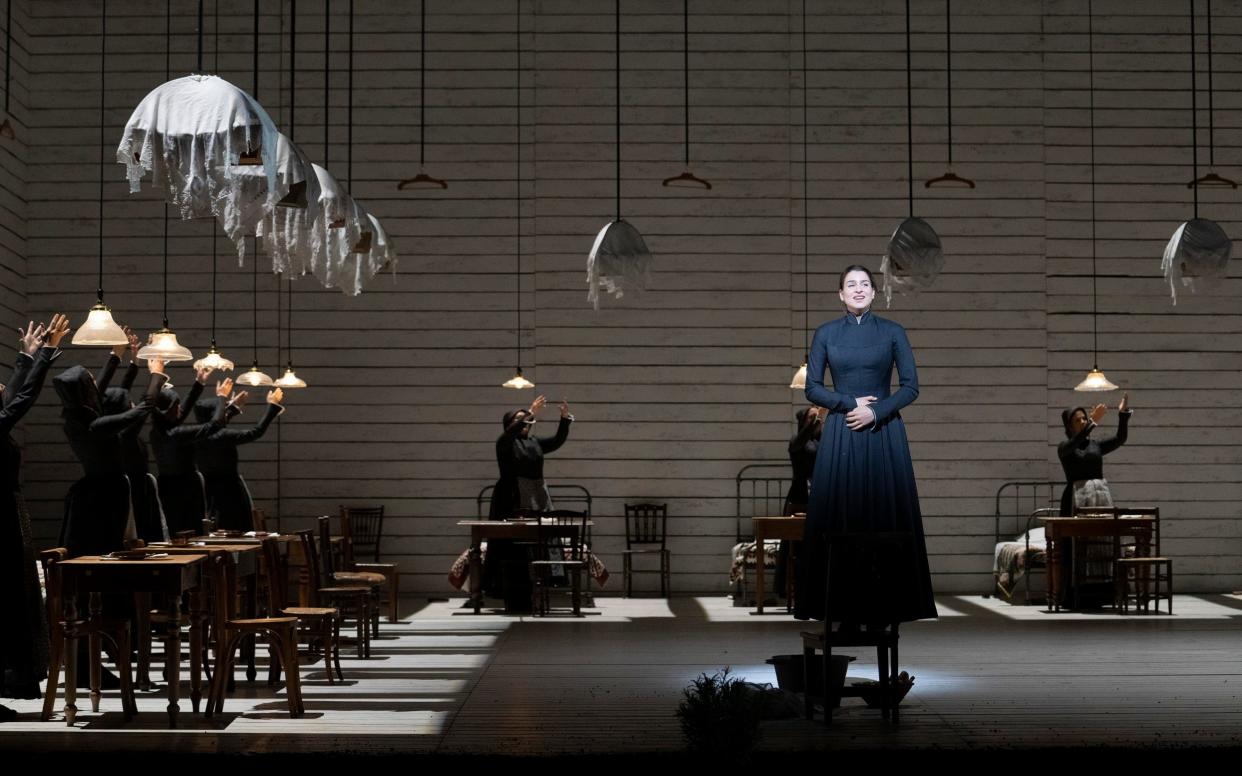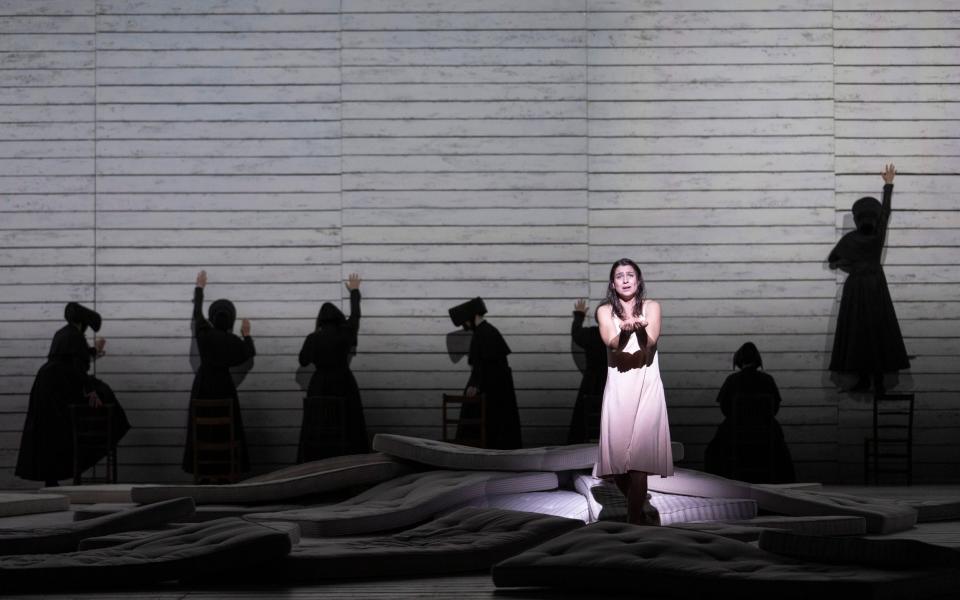Jenůfa, Royal Opera, review: edgy, evocative new staging that will surely become a classic

- Oops!Something went wrong.Please try again later.
- Oops!Something went wrong.Please try again later.
- Oops!Something went wrong.Please try again later.
Cathartic, deeply moving, tragic yet ultimately hopeful, Janáček’s Jenůfa is one of the most powerful operas of the early 20th century. First performed in Brno in 1904, It took a long time to reach wide acceptance, and it was only in 1986 that the Royal Opera first mounted the opera with its original Czech text, in a dim production by Yuri Lyubimov. Now it has done the work full justice: this new staging by Claus Guth will surely become a classic.
Its success lies in the way it transports Janáček’s vision beyond its nationalistic origins and makes it a tale about all oppressive societies. In Michael Levine’s evocative and chilly sets, this Jenůfa is no longer a Moravian folk-tale – when the authentic local dancers in Gesine Vollm’s costumes finally arrive for the wedding celebrations in Act III, they seem gaudily out of the place in the sombre scene.
The edgy lighting by James Farncombe, enhanced with video design by Rocafilm, keeps the threatening mood. Instead of folksiness, we see an abstract picture of a life controlled and lived by the rules: a wooden-slatted wall rising to reveal not the working mill of Janáček’s original vision, but an ordered ritual of beds enclosed, regimented and offering no escape.
Jenůfa has transgressed this society’s rules by having a child out of wedlock. In Asmik Grigorian’s beautifully sung, infinitely touching portrayal, demure with eyes held down but blossoming into a wan smile, she is as much a victim as she is a sinner. Her voice is pure, perfectly focused, though perhaps lacking the power for her big outburst in the last act (where she is unhelpfully placed upstage).
The Kostelnička of Karita Mattila, one of the great singing actresses of our time, is an overpowering creation who knows that she must in her own way right this wrong – and that means killing the child who has disrupted the conventions of this world. Mattila’s voice may not have all the lustrous power of the past, but it packs an emotional punch that takes you into the heart of her dilemma.

Both the visual imagination and the personal interactions of Claus Guth’s production (only his second for this house) are piercingly drawn: in the darkness of Act II, the beds have become a cage to confine Jenůfa and hide her child, while among the black-clothed chorus a menacing crow hovers over the scene and a bloodied child walks across the stage. As Jenůfa’s would-be suitors, Nicky Spence’s magnificently sung Laca, whom she will marry, makes a stronger vocal impression than the dissolute Števa of Saimir Pirgu, who is the father of her child.
The smaller parts are all realised with carefully observed precision; the twists and turns of Janáček’s vivid score, such a miraculously original approach to post-Romantic writing, are held in an ideal balance by conductor Henrik Nánási, balancing lyricism with power and shaping every phrase with care. As the Kostelnička is led away to face justice, the possibility of redemptive love for Jenůfa and Laca appears in the uplifting final scene: they step forward, the wall descends behind them – they are at last outside its rigid grip, free to grow.
In rep until Oct 12. Tickets: 020 7304 4000; roh.org.uk

